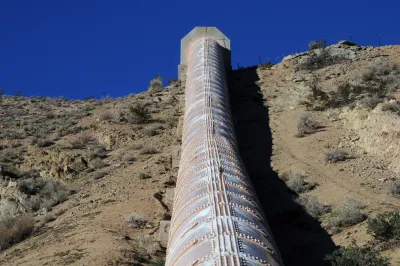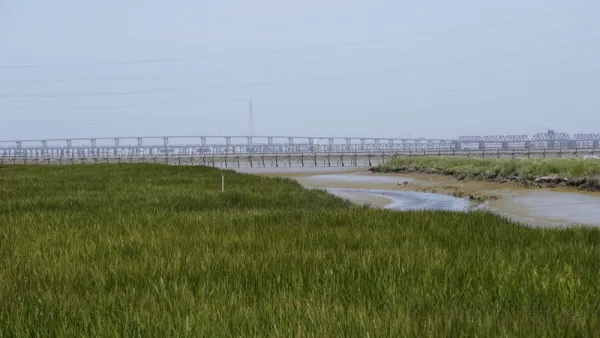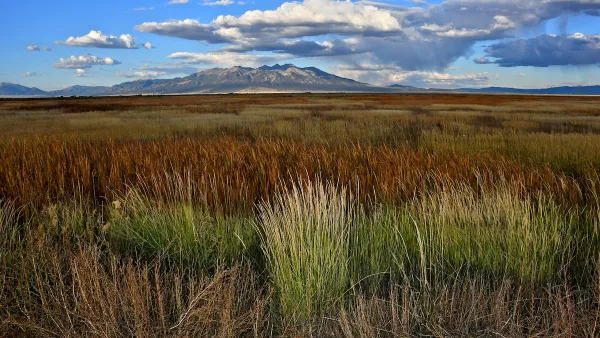Home builders fear bans on connections of homes to water systems, issued from the state and cities, will increase next month when Gov. Jerry Brown's new water mandates take effect June 1.

"In October, the state’s water board barred 22 mostly rural districts serving 5,063 water-rights holders from granting additional water taps until they find alternative, supplemental water sources," writes Kris Hudson, real estate reporter for The Wall Street Journal. He adds that some municipalities with their own water sources, such as Montecito Water District near Santa Barbara, banned new water taps, the term for the connection between water and homes, until new sources of water are found.
Builders point to the fact that not only are new homes far more water-efficient inside homes, using only about half as water as three bedroom homes built in 1975 according to the bar graph, but the water conservation on landscaping far surpasses older homes.
The greater strides that builders can make now are in new homes’ yards. Gov. Brown’s order seeks for new lawns to use underground irrigation systems....
Some builders, such as KB Home, are installing minimal, if any, turf in front of their newly built homes, instead opting for rock, mulch and drought-tolerant vegetation.
Home building in California, second only to Texas, "increased 17 percent in 2014, with 69,000 units added, compared with 59,000 in 2013," writes Melody Gutierrez for the San Francisco Chronicle. Insufficient home construction, particularly in coastal areas, is blamed for the state's high housing costs, as a state Legislative Analyst's report recently concluded.
"We really need to look at older homes and the agriculture industry if you want to…have a bigger impact on water conservation,” said Lawrence Webb, chairman and CEO of The New Home Co.
On the national level, home builders may appear less concerned with adapting to new environmental conditions regarding water judging from their opposition to "the Environmental Protection Agency and U.S. Army Corps of Engineers implementing a proposed rule that could result in millions of acres of private property to be regulated as wetlands under the Clean Water Act," according to the National Association of Home Builders' May 1 press release.
"A [2013] federal study shows that America's wetlands are disappearing faster than efforts can restore and recreate them, with serious consequences for endangered species and our quality of life," wrote former Planetizen editor, Jonathan Nettler, now directing the Urban Land Institute's Los Angeles Office.
FULL STORY: As California Drought Drags On, Home Builders Vie for a Voice

Analysis: Cybertruck Fatality Rate Far Exceeds That of Ford Pinto
The Tesla Cybertruck was recalled seven times last year.

National Parks Layoffs Will Cause Communities to Lose Billions
Thousands of essential park workers were laid off this week, just before the busy spring break season.

Retro-silient?: America’s First “Eco-burb,” The Woodlands Turns 50
A master-planned community north of Houston offers lessons on green infrastructure and resilient design, but falls short of its founder’s lofty affordability and walkability goals.

Test News Post 1
This is a summary

Analysis: Cybertruck Fatality Rate Far Exceeds That of Ford Pinto
The Tesla Cybertruck was recalled seven times last year.

Test News Headline 46
Test for the image on the front page.
Urban Design for Planners 1: Software Tools
This six-course series explores essential urban design concepts using open source software and equips planners with the tools they need to participate fully in the urban design process.
Planning for Universal Design
Learn the tools for implementing Universal Design in planning regulations.
EMC Planning Group, Inc.
Planetizen
Planetizen
Mpact (formerly Rail~Volution)
Great Falls Development Authority, Inc.
HUDs Office of Policy Development and Research
NYU Wagner Graduate School of Public Service




























